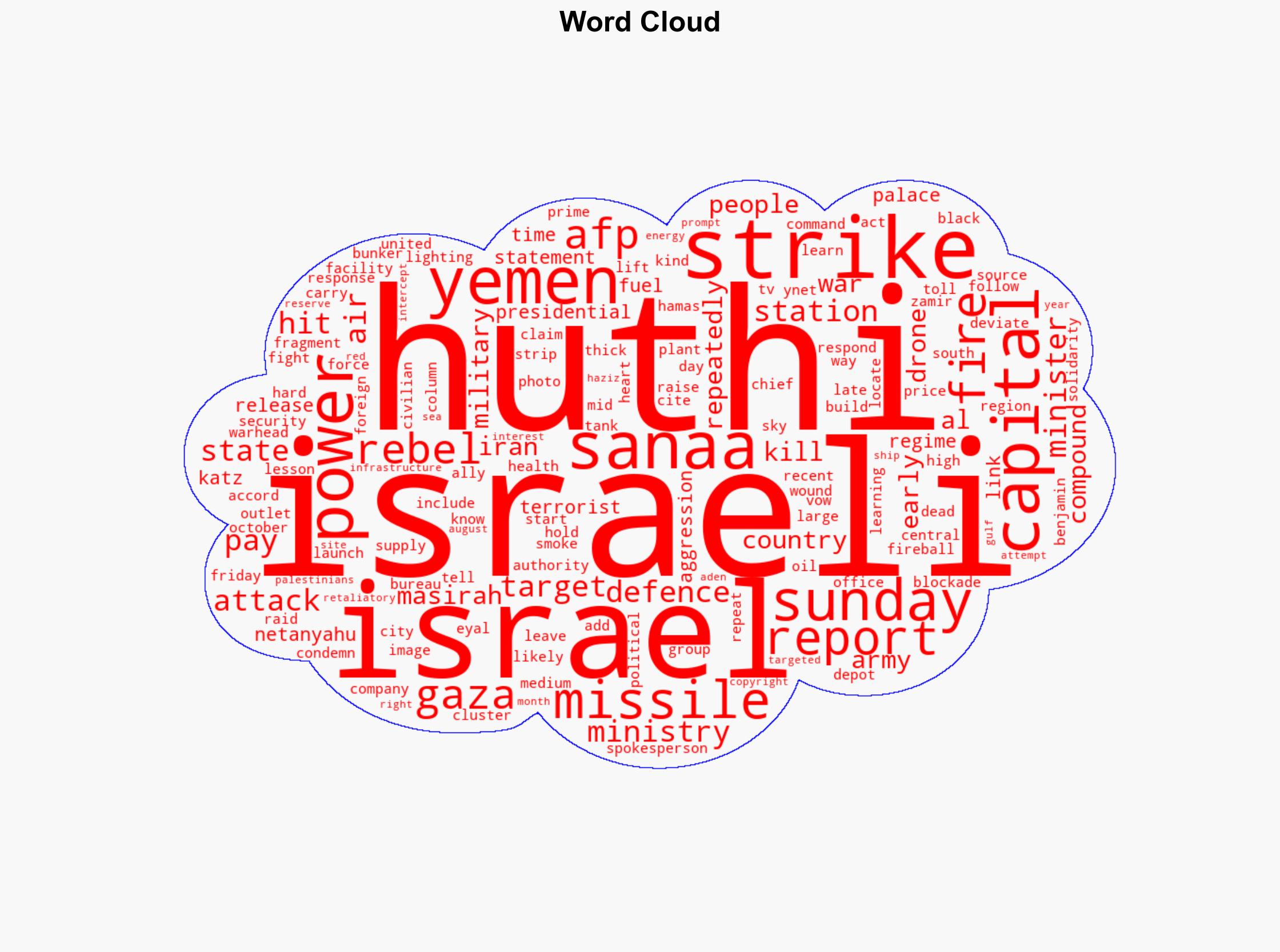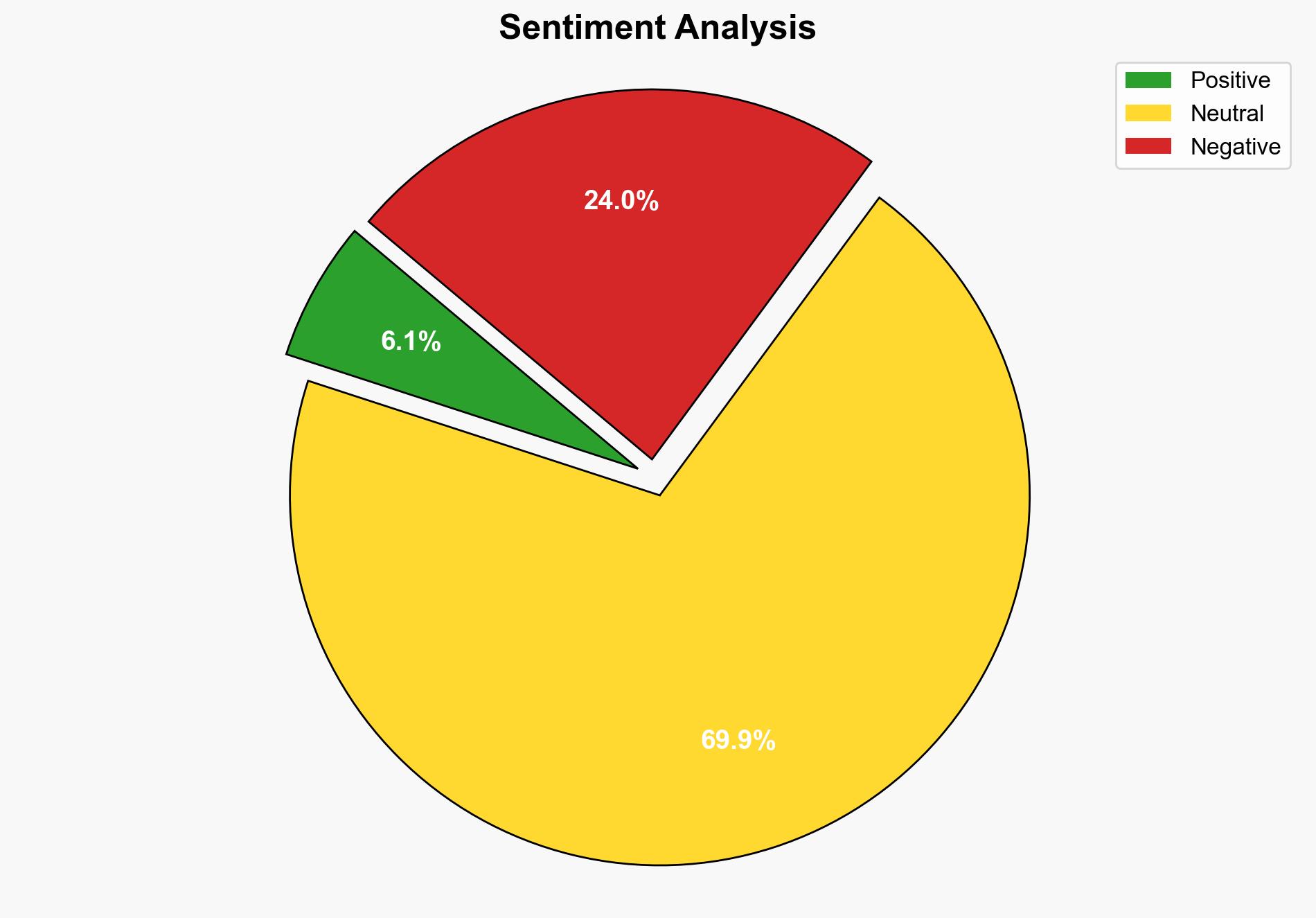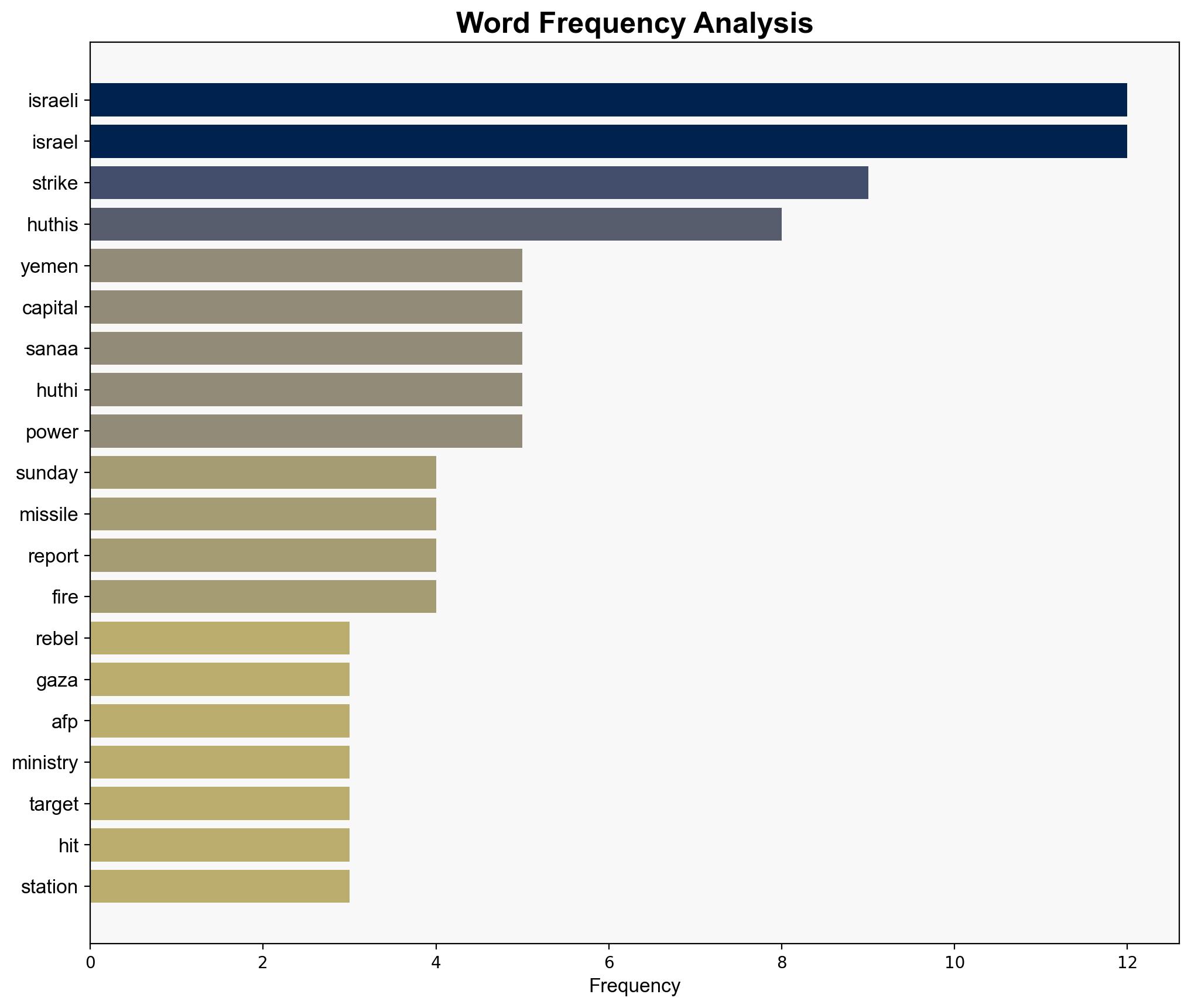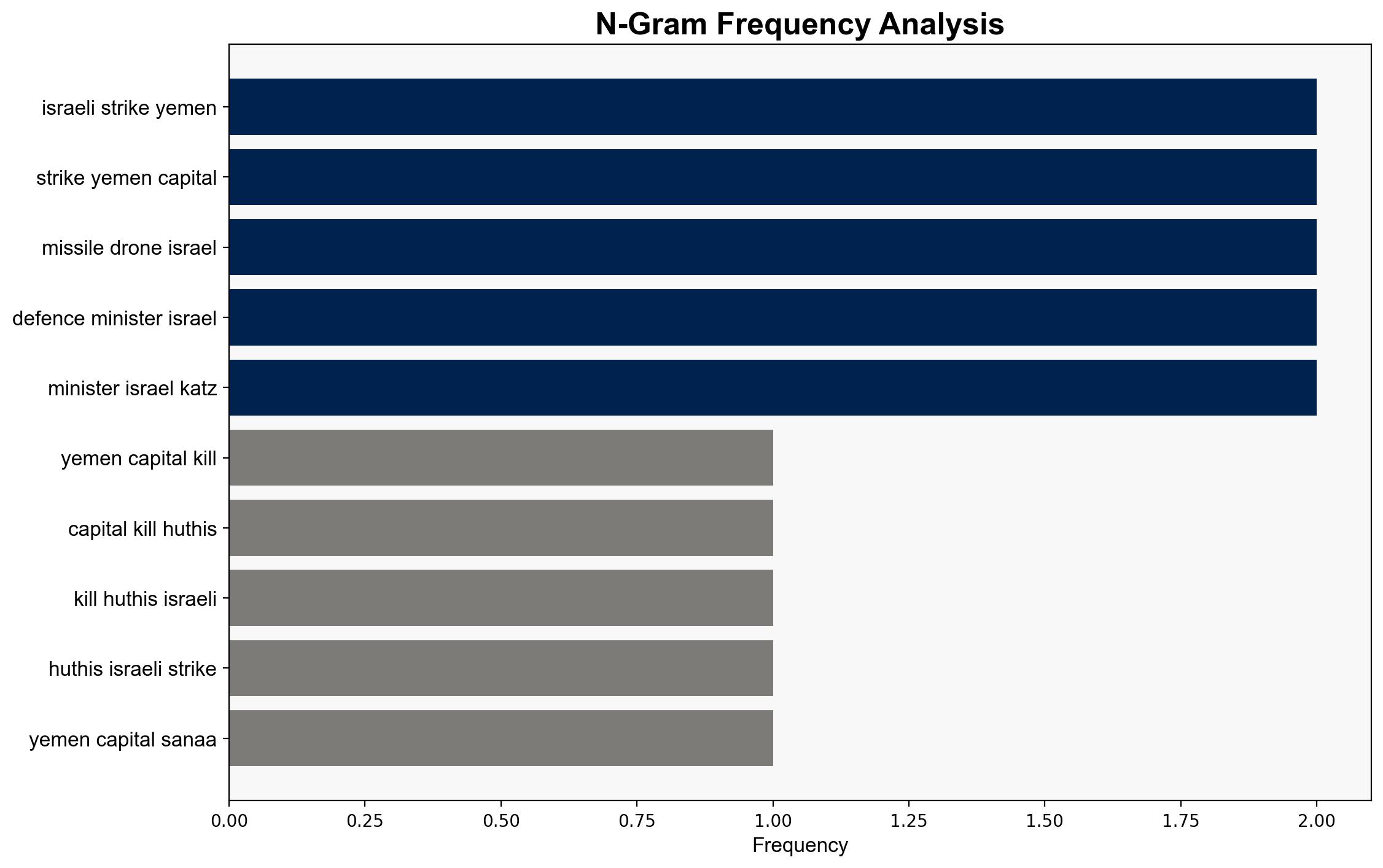Israeli Strikes In Yemen’s Capital Kill Four Huthis Say – International Business Times
Published on: 2025-08-24
Intelligence Report: Israeli Strikes In Yemen’s Capital Kill Four Huthis Say – International Business Times
1. BLUF (Bottom Line Up Front)
The Israeli airstrikes in Yemen, targeting Huthi positions, are a direct response to missile and drone attacks launched by the Huthis against Israel. The most supported hypothesis is that Israel aims to deter further Huthi aggression and demonstrate military capability. Confidence level: Moderate. Recommended action: Monitor Huthi retaliatory capabilities and potential escalation in the region.
2. Competing Hypotheses
1. **Deterrence and Retaliation Hypothesis**: Israel’s strikes are a calculated response to Huthi missile and drone attacks, intended to deter future aggression and degrade Huthi military capabilities.
2. **Strategic Posturing Hypothesis**: The strikes are part of a broader Israeli strategy to assert regional dominance and signal to Iran and its allies, including the Huthis, that Israel will respond forcefully to threats.
Using ACH 2.0, the Deterrence and Retaliation Hypothesis is better supported by the evidence of recent Huthi attacks and Israel’s stated objectives of targeting military and energy infrastructure linked to the Huthis.
3. Key Assumptions and Red Flags
– **Assumptions**: It is assumed that the Huthis are acting independently in their attacks on Israel, without direct Iranian command. It is also assumed that Israel’s military actions are solely defensive.
– **Red Flags**: The lack of independent verification of the targets hit and casualty figures raises questions about the accuracy of the reports. The potential for misinformation or propaganda from both sides is high.
– **Blind Spots**: The extent of Iranian involvement or support for the Huthis in these attacks is not fully clear, which could alter the strategic landscape.
4. Implications and Strategic Risks
– **Escalation Risk**: Continued Israeli strikes could provoke a broader conflict involving Iran and its proxies, increasing regional instability.
– **Geopolitical Tensions**: The strikes may strain Israel’s relations with other regional powers and complicate diplomatic efforts to stabilize the Middle East.
– **Economic Impact**: Disruption of energy infrastructure in Yemen could have ripple effects on global oil markets, particularly if the conflict escalates.
5. Recommendations and Outlook
- Enhance intelligence collection on Huthi capabilities and Iranian involvement to better anticipate future threats.
- Engage in diplomatic efforts to de-escalate tensions, possibly through back-channel communications with Iran.
- Scenario Projections:
- Best Case: Diplomatic intervention leads to a ceasefire and reduction in hostilities.
- Worst Case: Escalation into a broader regional conflict involving multiple state and non-state actors.
- Most Likely: Continued tit-for-tat strikes with periodic escalations, maintaining a high level of tension.
6. Key Individuals and Entities
– Benjamin Netanyahu
– Israel Katz
– Eyal Zamir
7. Thematic Tags
national security threats, cybersecurity, counter-terrorism, regional focus




